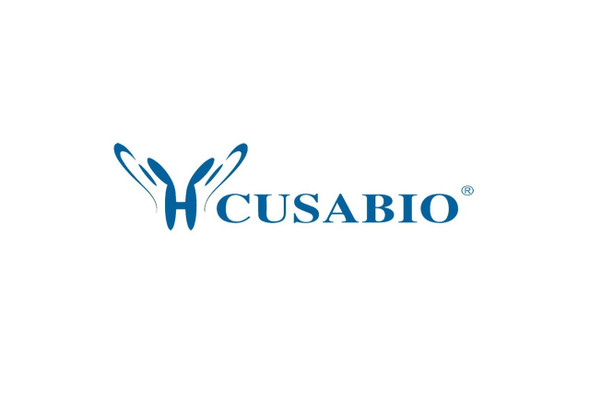Cusabio Mouse Recombinants
Recombinant Mouse BAG family molecular chaperone regulator 3 (Bag3) | CSB-EP864372MO
- SKU:
- CSB-EP864372MO
- Availability:
- 3 - 7 Working Days
Description
Recombinant Mouse BAG family molecular chaperone regulator 3 (Bag3) | CSB-EP864372MO | Cusabio
Alternative Name(s): Bcl-2-associated athanogene 3Bcl-2-binding protein Bis
Gene Names: Bag3
Research Areas: Others
Organism: Mus musculus (Mouse)
AA Sequence: SAATQSPMMQMASGNGASDRDPLPPGWEIKIDPQTGWPFFVDHNSRTTTWNDPRVPPEGPKDTASSANGPSRDGSRLLPIREGHPIYPQLRPGYIPIPVLHEGSENRQPHLFHAYSQPGVQRFRTEAAAATPQRSQSPLRGGMTEAAQTDKQCGQMPATATTAAAQPPTAHGPERSQSPAASDCSSSSSSASLPSSGRSSLGSHQLPRGYIPIPVIHEQNITRPAAQPSFHQAQKTHYPAQQGEYQPQQPVYHKIQGDDWEPRPLRAASPFRSPVRGASSREGSPARSGTPVHCPSPIRVHTVVDRPQPMTHREPPPVTQPENKPESKPGPAGPDLPPGHIPIQVIRREADSKPVSQKSPPPAEKVEVKVSSAPIPCPSPSPAPSAVPSPPKNVAAEQKAAPSPAPAEPAAPKSGEAETPPKHPGVLKVEAILEKVQGLEQAVDSFEGKKTDKKYLMIEEYLTKELLALDSVDPEGRADVRQARRDGVRKVQTILEKLEQKAIDVPGQVQVYELQPSNLEAEQPLQEIMGAVVADKDKKGPENKDPQTESQQLEAKAATPPNPSNPADSAGNLVAP
Source: E.coli
Tag Info: N-terminal 6xHis-SUMO-tagged
Expression Region: 2-577aa
Sequence Info: Full Length of Mature Protein
MW: 77.7 kDa
Purity: Greater than 90% as determined by SDS-PAGE.
Relevance: Inhibits the chaperone activity of HSP70/HSC70 by promoting substrate release. Has anti-apoptotic activity.
Reference: Bis, a Bcl-2-binding protein that synergizes with Bcl-2 in preventing cell death.Lee J.H., Takahashi T., Yasuhara N., Inazawa J., Kamada S., Tsujimoto Y.Oncogene 18:6183-6190(1999)
Storage: The shelf life is related to many factors, storage state, buffer ingredients, storage temperature and the stability of the protein itself. Generally, the shelf life of liquid form is 6 months at -20?/-80?. The shelf life of lyophilized form is 12 months at -20?/-80?.
Notes: Repeated freezing and thawing is not recommended. Store working aliquots at 4? for up to one week.
Function: Co-chaperone for HSP70 and HSC70 chaperone proteins. Acts as a nucleotide-exchange factor (NEF) promoting the release of ADP from the HSP70 and HSC70 proteins thereby triggering client/substrate protein release. Nucleotide release is mediated via its binding to the nucleotide-binding domain (NBD) of HSPA8/HSC70 where as the substrate release is mediated via its binding to the substrate-binding domain (SBD) of HSPA8/HSC70. Has anti-apoptotic activity. Plays a role in the HSF1 nucleocytoplasmic transport.
Involvement in disease:
Subcellular Location: Nucleus, Cytoplasm
Protein Families:
Tissue Specificity:
Paythway:
Form: Liquid or Lyophilized powder
Buffer: If the delivery form is liquid, the default storage buffer is Tris/PBS-based buffer, 5%-50% glycerol. If the delivery form is lyophilized powder, the buffer before lyophilization is Tris/PBS-based buffer, 6% Trehalose, pH 8.0.
Reconstitution: We recommend that this vial be briefly centrifuged prior to opening to bring the contents to the bottom. Please reconstitute protein in deionized sterile water to a concentration of 0.1-1.0 mg/mL.We recommend to add 5-50% of glycerol (final concentration) and aliquot for long-term storage at -20?/-80?. Our default final concentration of glycerol is 50%. Customers could use it as reference.
Uniprot ID: Q9JLV1
HGNC Database Link: N/A
UniGene Database Link: UniGene
KEGG Database Link: KEGG
STRING Database Link: STRING
OMIM Database Link: N/A









